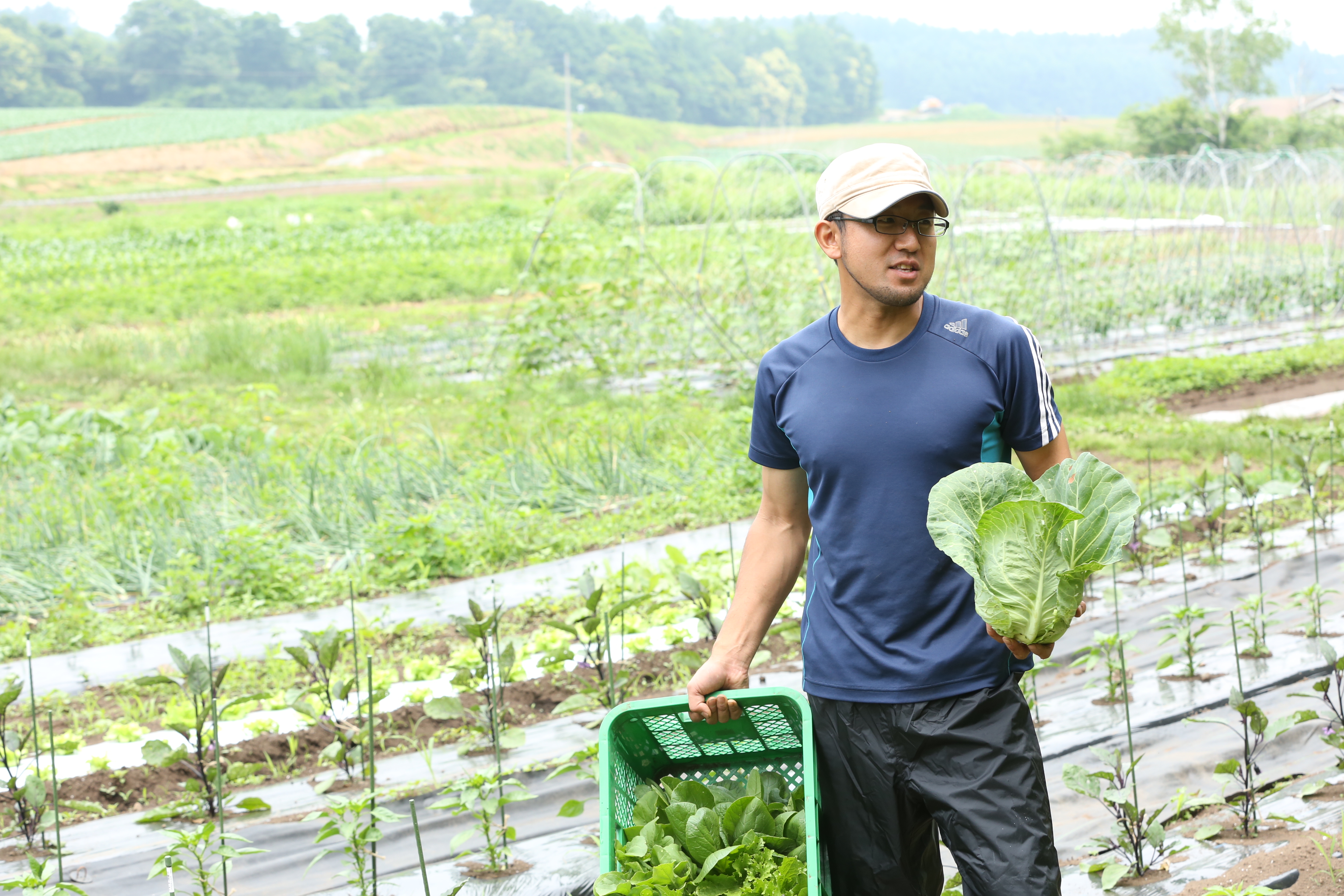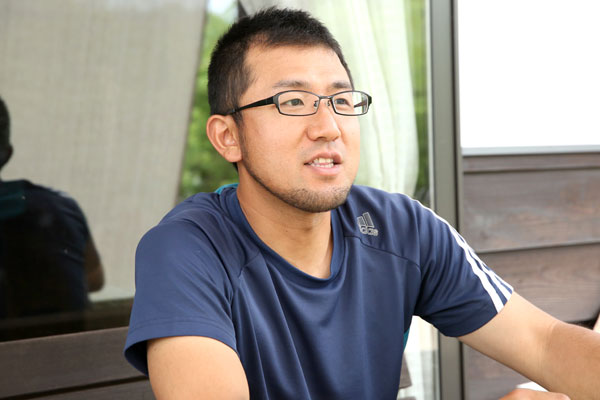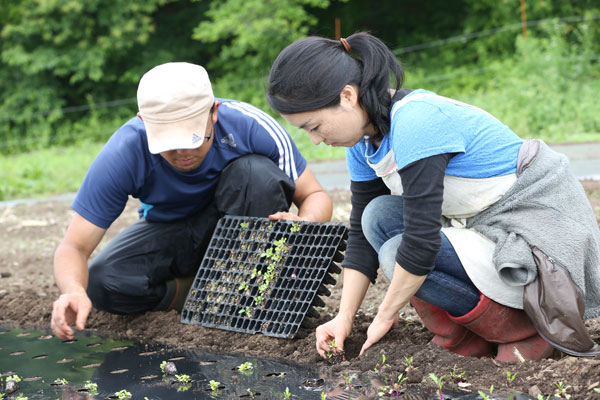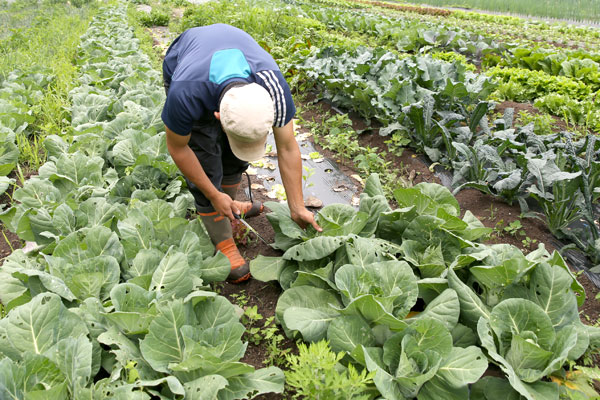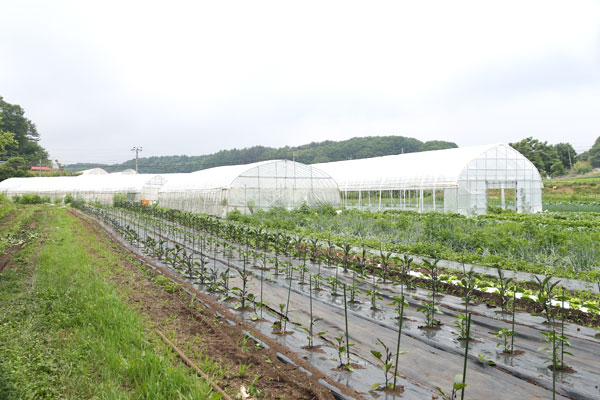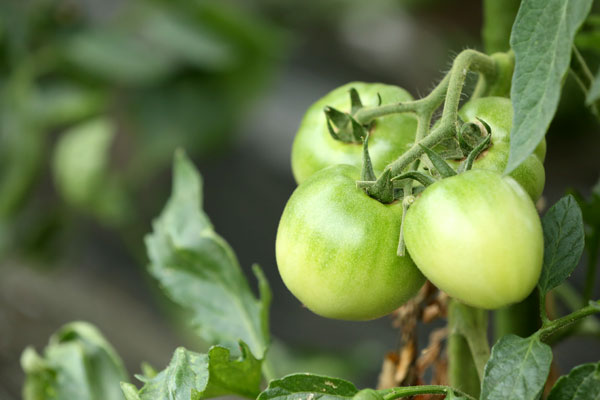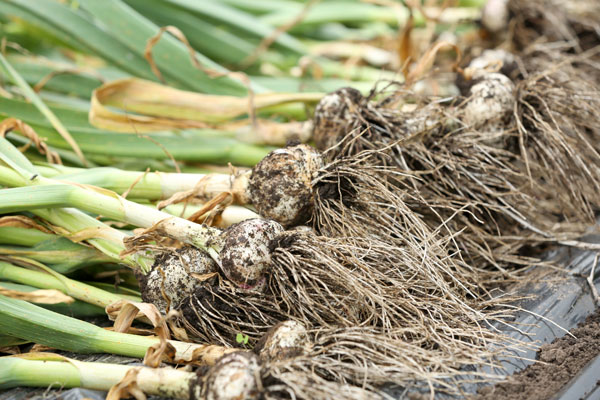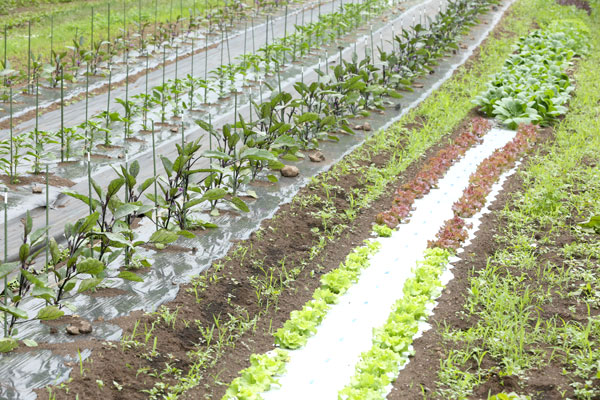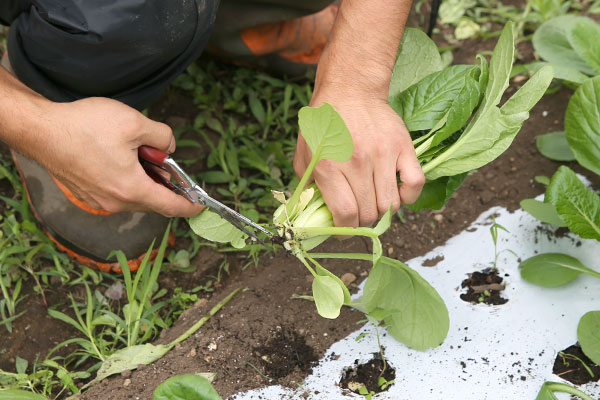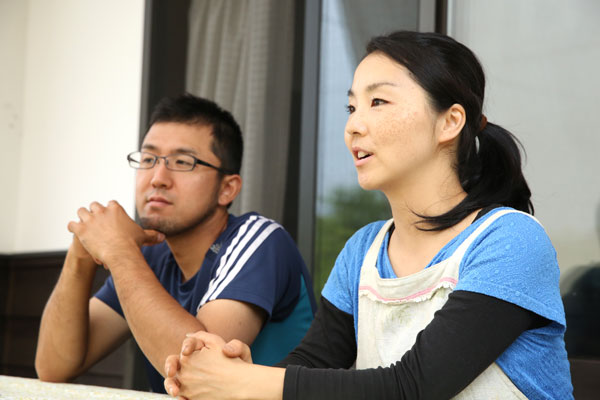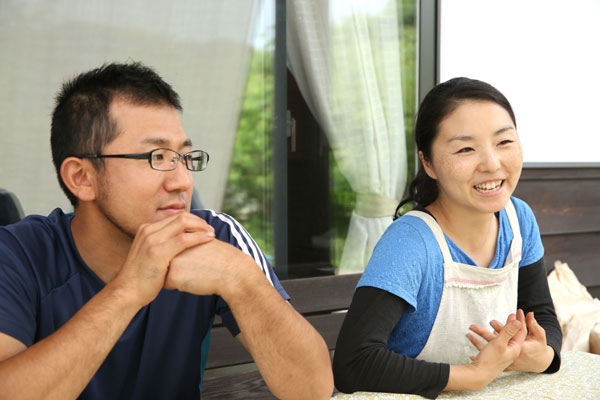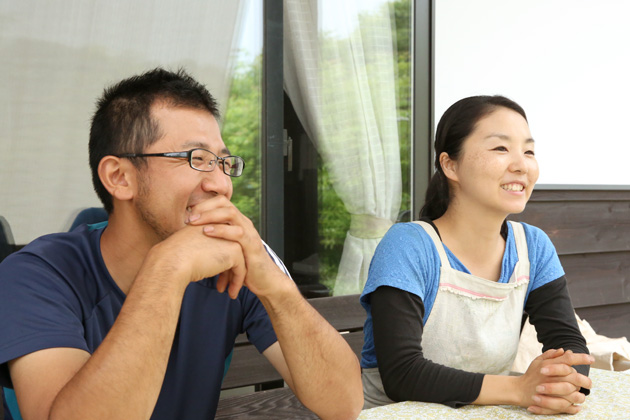
Interview with farmer Shiro Fujii of Farm Fujii
Farm Fujii's vegetables are sent to approximately 140 clients, including individual clients, businesses and famous restaurants such as the French cuisine "Florilege" in Tokyo. The farm is located at an altitude of 1000m in Saku City, Nagano Prefecture, where various produce are being grown in a manner that keeps the energy within the vegetables. "Family" was the key in starting up a farm run by the married couple. We interviewed the couple, whose warmth and generosity filled their home and their produce, about the reason they began farming and their thoughts on growing vegetables.
JAPANTWO(JP2):What had you been doing before you began farming?
Shiro Fujii(Mr. Fujii):I was a system engineer and my wife was in sales; both of us were working at the same company in Tokyo. I had been developing software in the company, and my wife, who was in the sales department, sold the products we engineers made and managed exhibitions. We got married after a so-called office romance; my wife kept working in the company even after the marriage and I resigned. It's an interesting case where the husband leaves the company after a marriage.
JP2:Why did you resign?
Mr. Fujii:My marriage, coincidentally, took place at the time when I was changing my career. Back when I was a student, I had wanted to work in a field that was involved in nature and the environment, but it wasn't possible for me to immediately get a job like that. I thought I had to first get some sort of job to make a living. So I began to learn programming to become a system engineer, which was said to be the career that would grow in demand in the future. Although I joined a small company, it had the energy to make things that the world had yet to see. Eventually, I became a team leader and I enjoyed directing projects, but I still wanted to work in a field related to nature and the environment, and kept on thinking about changing my career.
JP2:After the resignation, what kind of job did you get?
Mr. Fujii:I started working at an environmental consulting firm. Big corporations submit a environmental report summarizing things as: "how much tension the entire company or group has been creating on the environment," and "how they are reducing this tension." Also, more corporations have begun to submit sustainability reports and CSR reports, which not only outline their involvement in the environmental issues, but address the relationship between the corporation and the society: employees, customers and clients, community. My new job was about helping the planning and publication of these reports. The company's corporate mission was "leaving behind a sustainable society for the next generation." Since the corporate operation have become global, they concluded that changes in corporate operation affect the sustainability of human society. While working on the reports questioning various corporations on "what we must do for the future?" I was thinking about this topic from an independent third-person perspective.
JP2:What were your specific duties in that company?
Mr. Fujii:As a director, I called the writers and photographers to do interviews with the presidents of corporations, wrote articles with the materials collected from the different departments and summarized them into a single report with the designers. For instance, if a large corporation announces that aside from the profit it is actively pursuing broader actions for the future of our environment and society, other corporations will definitely follow suit. Then, the entire society will change for the better. That's what I was thinking while working for about a year and a half.
JP2:What led you to quit the environment-related work and start farming?
Mr. Fujii:Although the consulting work had been rewarding, one day I felt, "I want to do get involved in something more direct. I want to work in nature!" Gradually that feeling grew stronger and stronger. Also when I talked about our future life with my wife she mentioned, "It's better to raise kids in the countryside." We had the same opinion and were longing to live there. At that time, I learned in books and on the internet about people who have never farmed taking up farming. I thought we can achieve a life in the countryside while working in nature if we start farming. That's how it began.
JP2:What was the reason behind choosing Nagano as a place to start farming?
Mr. Fujii:When I was gathering information on the internet about how to start up a farm, I found this person who has begun a farm free of chemical fertilizers and pesticides in Sakuma City, Nagano Prefecture. So I contacted him and went to see him in person. After that, I went to his teacher that taught him about farming and he accepted me as a trainee, so we decided to go to Nagano.
JP2:What is something you feel that has changed since you started farming?
Mr. Fujii:The biggest change is that I got to decide everything on my own, since starting up a farm is starting an independent business. Also, I had an unhealthy lifestyle when I was working in Tokyo: I would mainly eat out, I would come home late after overtimes, and I had a chronic sleep deprivation. But since I arrived here and started farming, I started moving my body everyday working in the fields, so I get to sleep soundly and don't gain those extra fat. It's the exact opposite of my lifestyle in Tokyo; I'm having a healthy and humanistic life here.
JP2:Tell us about the characteristics of this region you have been farming.
Mr. Fujii:Chojabara has become a major producer of highland vegetables such as Chinese cabbage, cabbage, and lettuce. However, the population has been aging and decreasing, and there are many farmers abandoning agriculture due to the lack of successors. The village in which we live is a little special: there are many young farmers who have recently arrived like us, the traditional farming families have successors from our generation, and there are tonnes of kids. It's an ideal farming village.
JP2:Are there more interactions between the neighbors in a place like this?
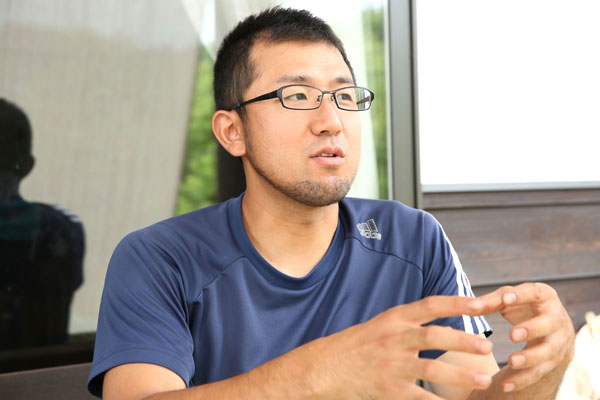
Mr. Fujii:Definitely. In Tokyo, neighbors in apartments or condominiums would just greet each other or they may even not do so. But here, the neighbors manage the village and people help each other when something happens; it's a communal organization. They are people who you have strong relationships with next to your family, so there really is a sense of security and you can rely on them whenever something happens. We have 3 kids and there are many families in the same generation. The kids often go and play at each other 's homes and it feels like we are raising the children together.
JP2:Did you save money for starting up farming?
Mr. Fujii:My wife and I didn't spend much money when we were living in Tokyo, so we had enough savings for the initial expense. However,we didn't have any income for the first year in training so we lived off our savings. At first, I was scheduled to train for two years, which was recommended by the province, but I wanted to start as soon as possible and felt like I was wasting my money so I quit the training and became independent after a year.
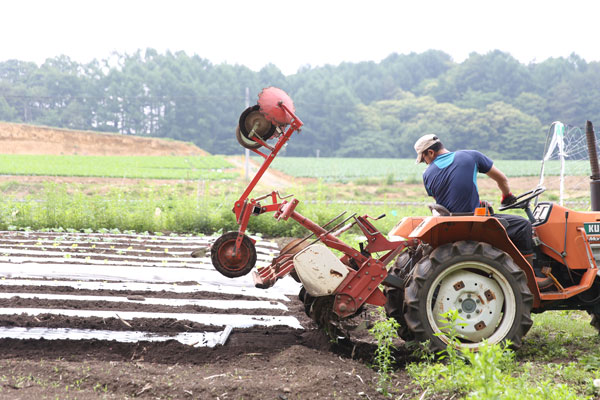
JP2:Wasn't it difficult to survive on the remaining savings?
Mr. Fujii:I was working as a system engineer while farming in the first 2 years in Nagano. I could do the system engineering work anywhere, so I got some work from the company I've previously worked for, when I still didn't have much winter farm work. Then, we gradually became busy and started shipping vegetables even during the winter season, so I stopped my system engineer work. I think we were able to move here because I had that flexibility of working from anywhere. My wife and I are quite easygoing so we thought that even if we fail as farmers, we can find another job. That's why I think we were able to take the first step without much worries. "Let's try farming and even if it doesn't work out, we'll be fine!"
JP2:Now, I would like to ask you about your work. What is Fujii farm's current scale of operation?
Mr. Fujii:Currently, we are growing produce in the open field and 5 unheated greenhouses that are located within the 1.5 ha site.
JP2:How many types of vegetables are you growing?
Mr. Fujii:There are about 40-50 types in all. Every year we are incorporating new items and varieties, and we try to select the tastier vegetables referring to our customer's feedback. There are various criteria for selecting the vegetable varieties, but there is also the tendency to choose them by the harvest timing and the one that are easy to grow to meet the market's shipping standards. As a result, I think the taste, which is the most important, is often getting neglected. So we place emphasis on the vegetable's taste more than anything else when selecting the varieties.
JP2:Are you interested in vegetables from outside of Japan, the vegetables from overseas?
Mr. Fujii:Absolutely. There are demands in restaurants, so we have been gradually increasing the production of colorful and interesting vegetables from Europe.
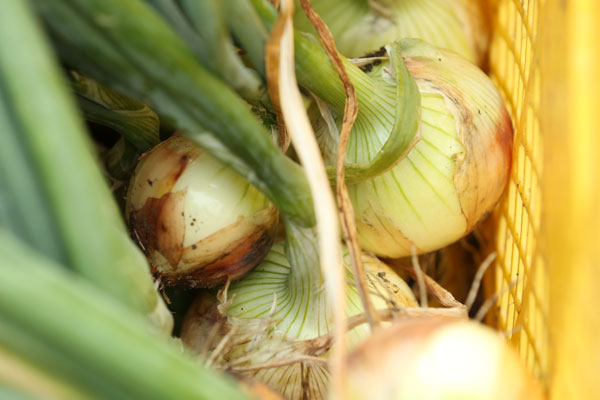
JP2:What got you into cultivating without pesticides and chemical fertilizers?
Mr. Fujii:When I was living in Tokyo,I had a negative impression of pesticides and chemical fertilizers, due to the strong image of DDT and Agent Orange's harmful effect on the human bodies. So I didn't want to use any chemical fertilizer nor pesticides as long as I was farming. When I actually started farming, I found out the pesticide residue standards of Japan was quite strict, and if we follow this standard, there won't be any effect on the human body.
JP2:Knowing that the regular vegetables will not have any effect on the human body, why did you stick to the cultivation free of chemical fertilizers and pesticides?
Mr. Fujii:It is because it's the most natural. Even if I know that the produce is safe, I did not feel like using chemically synthesized fertilizers and unnatural pesticides for growing vegetables that my family is going to eat.
Ultimately, the things you eat become part of your body, so I thought it's always better not to use them. Since we are able to grow really delicious vegetables without pesticides nor chemical fertilizers, we don't need to use them.
JP2:What does "chemical fertilizer free" actually mean?
Mr. Fujii:It's not about choosing a specific type of fertilizer, but it means that we cultivate without using any fertilizers, or just by using organic fertilizers. Organic fertilizer are made from organic matter of animals and vegetables, such as chicken manure and rice straw, which are fermented by microorganisms and then decomposed into a state that the plants can easily absorb. The things existing in nature that are turned into fertilizers through a natural process are called “organic fertilizers.”
JP2:Are there anything else you keep in mind while farming?
Mr. Fujii:Every year we analyze the soil and we take care of it by replenishing it with nutrients and minerals it lacks. If we maintain a healthy soil, the roots of the crops grow healthy. If the roots are healthy, it has a stronger resistance against pests and diseases.
JP2:Does the amount of soil nutrients change in different locations?
Mr. Fujii:It depends on how much fertilizers have been used in the past, and what was grown there. Our farm was originally used by an old couple who had been dairy farming up until 30 years ago. So over the years they've put a lot of compost made from cow dung and rice straw in the field. Since the field wasn't used for many years, it became filled with layers of tall weeds. Rich in organic and fertilizing materials, it became an highly ideal location for cultivating organic vegetables.
JP2:How did the place look like before you began cultivating the land?
Mr. Fujii:It was miserable. The place was covered with 3 m weeds called "giant ragweed," and there were Japanese elms and mulberries growing here and there; you couldn't see how it was from the outside, like a jungle. We began by mowing the weeds, cutting the trees with the chainsaw, and we asked our neighbor for a giant machine that dug all the roots out. We slowly made it into a farm. A quarter of the field was ready to be used as a farm when I became independent. Gradually, we expanded our farm while we shipped vegetables and after 3 to 4 years, it turned out to be the farm we now have.
JP2:Do you have any plans to expand in the future?
Mr. Fujii:We do not intend to expand at the moment. Rather, we would like to provide greater satisfaction to our regular home-delivery customers by improving the quality of our vegetable combos.
JP2:Do you pay special attention to particular things when selling the vegetables?
Mr. Fujii:We pay close attention to the end consumers, the people who cook the vegetables. We highlight the vegetables' qualities, explain what is nice about them, and we brand them as produce that can only be purchased at our place. If we were to sell our vegetables through the market, we cannot communicate those qualities directly to the consumers. Receiving direct customer feedback like, "it was really delicious," is the biggest advantage and the most rewarding thing of this sales method. Just hearing their comments is enough to compensate for our hard work.
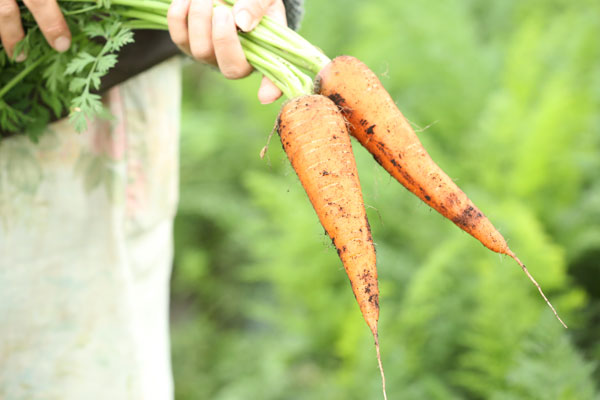
JP2:How are you planning to run your business from here on?
Mr. Fujii:We are reaching our 10th anniversary, so our present assignment is to decide what to do in the next 10 years. We've been able to realize our ideas and we were able to build a house. We are getting more customers and are enjoying our life and work. In the next 10 years, we are thinking of opening up our farm for a lot more people to visit.
Mrs. Fujii:We're not really thinking of expanding the scale of operation. I'm still quite busy with the kids and before coming here, we felt the need to cherish the family moments, so now I just want to spend my time with the kids. But 10 years later, when the kids have grown up, I think I'll have more time to think about various things. Then, I'll think about something interesting to do. For example, since we deliver the vegetables to cooking classes, I can do lectures about vegetables there. Or I can call those students to come and experience farming. Also, it'll be fun to collaborate with the customers who do businesses and plan something. I want to challenge many things after 10 years.
JP2:Do you have any major goals for Farm Fujii?
Mrs. Fujii:Since it's not interesting to just pursue profit, we feel that we should enrich our relationship with the community. The people in the countryside have strong bonds. People are connected within each village unit, and everyone can figure out who is living here and what kind of people they are. Everyone trusts each other and they help each other whenever they are in trouble. That's something that I'd really like to promote: "a society which you can see the strong connections between people."
JP2:Please leave a message for the people aspiring to work in agriculture.
Mr. Fujii:I believe it's quite challenging for someone to leave their office work and get involved in agriculture, since they are completely different worlds. However, if you have the determination, I think it's important to "just do it." Even if you cannot earn 100% of your income through farming, you can utilize your skills and knowledge that you've gained to obtain additional income and contribute to the community. You can make a living from that, and the community will also develop. Anyway, I just want you to start taking actions. Please visit me, by all means, if you need any advice.
Farm Fujii
Address:384-2203 Saku City, Nagano Prefecture Fuse Ichi no Hara
Tel & FAX:050-3583-4600
Farm Fujii
Homepagehttp://fujiifarm.com/

